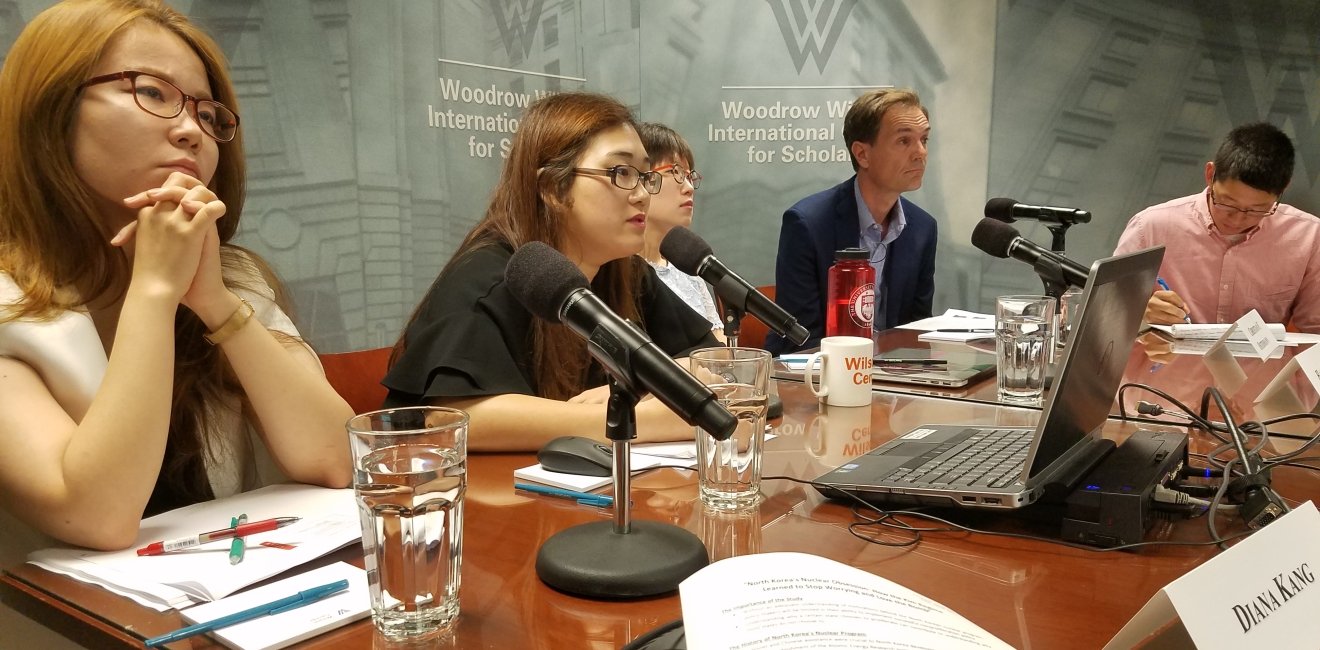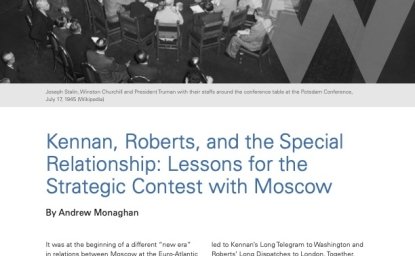2017 Korea Foundation Junior Scholar Presentations
Woodrow Wilson Center
Tuesday, July 25, 2017
On Tuesday, the Wilson Center’s History and Public Policy Program (HAPP), in coordination with the Hyundai Motor-Korea Foundation Center for Korean History and Public Policy (HM-KF Center), hosted this year’s Korea Foundation Junior Scholars’ Final Presentations. Each year, as a part of the Korea Foundation Junior Scholar Program, the History and Public Policy Program welcomes 3-4 Junior Scholars for 6-month research terms at the Woodrow Wilson Center in Washington, D.C.
 Before a Wilson Center audience, 2017 KF Junior Scholars Heajin Kim, Yoonjeong You, and Ui Seon (Diana) Kang presented research findings from each of their individual projects. Topics discussed during the presentations included China-North Korea nuclear relations, a historical to modern day perspective; the North Korean refugee issue, a deep analysis into the international definition of political vs. economic refugee; and a comparative study of North Korea’s outward policy vs. internal rhetoric through an insider’s look at a North Korean magazine series. For more detailed information on each presentation, please see below:
Before a Wilson Center audience, 2017 KF Junior Scholars Heajin Kim, Yoonjeong You, and Ui Seon (Diana) Kang presented research findings from each of their individual projects. Topics discussed during the presentations included China-North Korea nuclear relations, a historical to modern day perspective; the North Korean refugee issue, a deep analysis into the international definition of political vs. economic refugee; and a comparative study of North Korea’s outward policy vs. internal rhetoric through an insider’s look at a North Korean magazine series. For more detailed information on each presentation, please see below:
“North Korea's Nuclear Obsession: How the Kim Regime Learned to Stop Worrying and Love the Bomb” By Heajin Kim
Though North Korea's nuclear program has been predominantly indigenous, it has received external assistance—primarily from the Soviet Union and China—over the years, especially at its embryonic stage. To understand the North Korea’s strategic calculations, one should not limit its scope to the benefits of acquiring the bomb but consider both the costs and benefits. For that purpose, this study hypothesizes that the costs a patron (e.g. the Soviet Union, China) is willing to impose on its client (e.g. North Korea) to deter nuclear proliferation is another variable that determines the client’s nuclear behaviors.
“Are North Korean Refugees Traditional Refugees?” By Yoonjeong You
Whether North Korean refugees are ‘refugees sur place’ or traditional refugees is debatable. This research focuses on how the Refugee Convention can be applied to the North Korean refugee case to define these individuals as refugees in a traditional concept, focusing on 'reason of particular social group', which is the Songbun policy of North Korea.
“North Korea’s Perception towards Fall of Saigon: A Comparative Study of Kulloja and Diplomatic Archives” By Diana Kang
This project aims to analyze the implications of the fall of Saigon for North Korea by comparing and contrasting a theoretical magazine of North Korean government and diplomatic archives on their respective domestic and diplomatic policies.

History and Public Policy Program Director, Dr. Christian F. Ostermann, served as moderator for the presentation panel. Dr. James F. Person, Director of the Hyundai Motor-Korea Foundation Center for Korean History and Public Policy, offered commentary and remarks following the presentations.
The History and Public Policy Program would like to thank the Korea Foundation for their generous support for this program throughout the years, promoting modern-day research on the two Korea’s at the Wilson Center.






